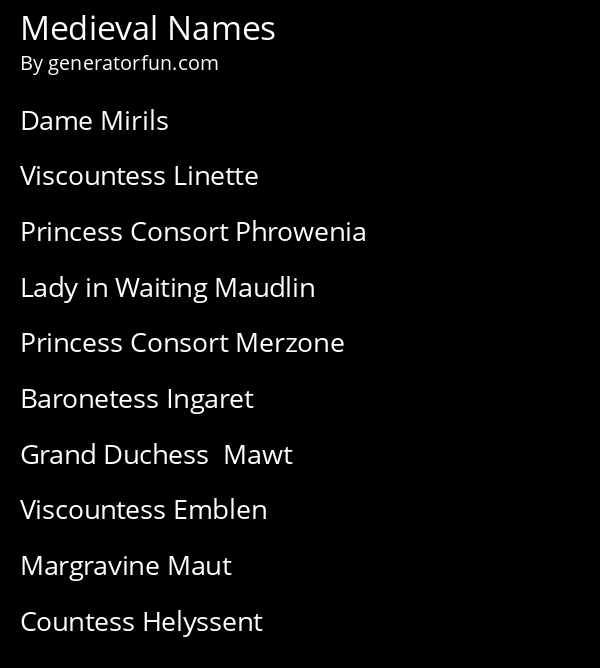

During the medieval period, survival and meeting basic needs were the primary goals of daily life. Basic education was typically provided at a monastery or church-run local school. Girls would frequently assist with more domestic duties like cooking, cleaning, and taking care of younger children, while boys would assist with labor on the land and in the fields. Around the age of 7 or 8, many children began working very early in life.

There was meat and dairy products available, but due to a lack of refrigeration and preservation methods, they needed to be consumed as soon as possible. Although some people were able to buy food or trade for food, the majority of their food came from their own land. People had to rely on water from wells, nearby streams, and rivers because they did not have access to running water. Additionally, the medieval era lacked many of the modern conveniences. In feudalism, serfs were expected to work the land and pay taxes as rent in exchange for protection and resources for their lower class. Feudalism and the social structure of nobles and serfs were also prevalent during this time period. Sundays were devoted to religious worship, and church services were a regular part of life. The Catholic faith that was prevalent at the time had a significant impact on day-to-day life. During the medieval period, people lived a life of subsistence and focused on the church and religion. Since people were almost entirely reliant on their own goods and resources, they had to make everything they needed. Most people were peasants, and most of society was rural, with many people living in small towns and villages. The majority of Medieval people worked on the land, mostly in farms and fields, to make ends meet. The medieval people lived very different from the lives we lead today, though in some ways they were similar. Lastly, some people changed their name because they were married to someone with a different name. Other times, a person might inherit or be given a new name and they didn't like it. Sometimes a person might want to take on a new name in order to start fresh or hide their identity. There were a few reasons why people might want to change their name. Names in medieval times were often chosen by parents for their children, as there was no system in place to choose names. For instance, if you are naming a child after Arthurian legend, consider choosing something like Guinevere or Lancelot instead of John Doe or Jane Smith.
#Ancient medieval name generator how to#
Some tips on how to create a good medieval name Another way is to use your own creativity and come up with your own name.
#Ancient medieval name generator generator#
One way is to use a random name generator like this one. There are several ways to generate a medieval name. The best medieval names were those that had some meaning behind them. In the medieval era, people had to come up with creative names for their children in order to make them stand out. It helped to distinguish one person from another and showed their personality. The European period that lasted from the 5th until the 15th century still fuels a large collection of stories to this very day, and for good reason: there's a lot of highly interesting material to work with! Already back then, names were very important for every person. This was a time of knights and castles, guilds and churches, witchcraft and witch hunts. Taking a trip through history, the Medieval Age will definitely catch your attention.

Create thousands of medieval names with this name generator


 0 kommentar(er)
0 kommentar(er)
